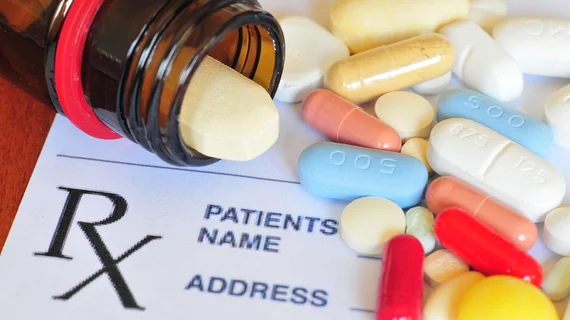CVS launches new PBM pricing model
As CVS Health continues to deal with the closure of its $69 billion acquisition of Aetna, its pharmacy benefit manager (PBM) branch is moving ahead with a new pricing model. The new focus could help guarantee net cost predictability and simplify pricing.
The company has also pledged to pass through 100 percent of rebates to plan sponsors and “take responsibility for the impact of drug price inflation and shifts in drug mix,” CVS announced.
CVS Caremark, the PBM business of CVS Health, will start a new pricing model that simplifies the financial arrangement underlying PBM contracts and introduces new cost management strategies, including formulary, utilization management and performance pharmacy networks. The new, Guaranteed Net Cost model will begin in 2019.
CVS Caremark has been briefing its benefit consultants and current and prospective clients on the model, according to CVS Health.
“We see a real opportunity to offer clients a simpler economic model that leverages proven PBM cost management strategies to provide predictable drug costs," Derica Rice, president of CVS Caremark, said in a statement. "As a result, CVS Health is introducing a straightforward, more holistic approach that enables plan sponsors to clearly see the net cost of their pharmacy benefit and select their PBM provider based on that criteria."
Under the new model, clients' average spends per prescription—after rebates and discounts—are guaranteed across retail, mail order and specialty pharmacy.
CVS Health CEO Larry Merlo has previously stated the company returns 98 percent of rebate savings directly to clients, or about $300 million in 2018. PBMs, which are known as the middlemen in the pharmaceutical space, have come under fire for their opaque practices and pricing models.
Rebates were also a top concern for industry associations as CVS Health underwent its acquisition of Aetna, the nation’s third-largest health insurance provider.
According to CVS, the new pricing model calculates plan utilization and expected rebate value and applies projected drug price inflation and expected shift in drug mix. In 2017, drug price growth for CVS Caremark PBM clients was just 0.2 percent, according to CVS Health––a far cry from the 10 percent price increases by drug manufacturers. CVS also stated its clients saved $600 million in healthcare care costs in 2017.
"As a PBM, our job has always been to help our clients manage costs in the face of escalating drug prices without compromising clinical care, so they can continue to provide an affordable benefit to their members," Rice said. "By simplifying the PBM economic model, we can focus on maximizing the impact of PBM strategies that help reduce costs for clients and consumers, and continue to develop additional innovative tools and approaches."

